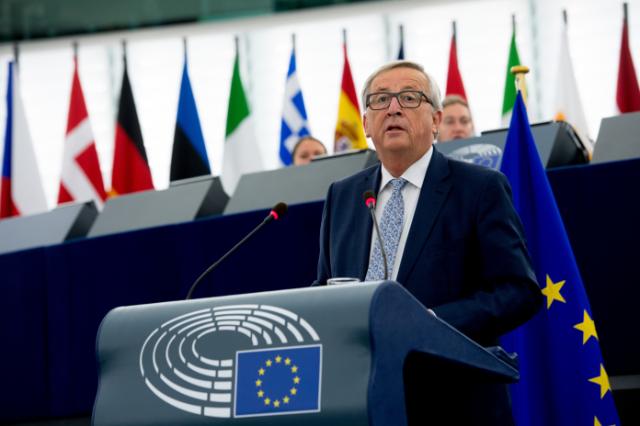
Sport, the Untapped European All-Rounder
Sport, the Untapped European All-Rounder
14 September 2017, Maxime Leblanc, Kiera Wason-Milne from Sport and Citizenship Think tank

Yesterday, Jean-Claude Juncker’s State of the Union address was received with no surprises. For his third take on the recently instated annual address, the President of the European Commission focused on expected themes including Brexit, employment, trade, and the migrant crisis.
‘We should not meddle in the everyday lives of European citizens by regulating every aspect. We should be big on the big things. We should not march in with a stream of new initiatives or seek ever-growing competences”.
As he breezed through past challenges and the forthcoming agenda, Juncker denied a single mention of potentially powerful and worthwhile subjects. We believe this is the case for sport, for it is an already existing core of daily European life.
European politics and European society estranged
The State of the Union address is only a recent tradition, established under the 2009 Treaty of Lisbon – one of a variety of changes brought to the Union’s functioning. Amongst other things, European institutions gained the power to formally influence the world of European sport via regulations on top of financial support. Yet, it is painfully evident that the symbolical annual address has been religiously respected while sport remains a non-urgent policy domain.
Sport isn’t necessarily the first thing one would associate to the EU. However, the Union’s involvement in sport has been on a steady rise- as is presently proved by the Erasmus + Programme a funding mechanism designed to develop and implement joint activities in the field of sport, such as the PASS Project. And yet by sharp contrast, one might associate Europeans with sport, or at least with football: Europe’s sport per se. Between the outstanding popular support of Europeans for football and the 58% of Europeans practicing regular physical activity, sport is the pulse of European society.
In a time when the Union faces a continuous democratic deficit and has never presented such a heterogeneous society, common ground for the EU28’s citizens appears to be the next challenge to tackle in the quest for more European integration and identity. The institutions and politics of Brussels are, time after time, perceived as distant and undemocratic by an important amount of Europeans. It is in this sense that sport reveals itself as a potentially unifying element within the Union, when over half of its citizens already talk the same language of sport. Given the latter, it is safe to say that Europe is in dire need of more social cohesion to answer its vast diversity and Physical Activity offers a unique opportunity to found a mental unity amongst Europeans, as suggests philosopher Gunter Gebauer.
Human development
That regular physical activity benefits individuals, throughout their lives, physically and emotionally, is no kept secret or unexplored angle of study. Less widespread are the proven links between physical activity and other Human Capitals such as intellectual, social, personal skills, and even financial. Designed to Move campaign/research proved daily exercise positively affected the Human Capital – for example volunteering and pursuing sports boosts young graduates’ employability.
On a different note, just as Human orientated, using sport for societal progress is evident in matters of social inclusion. The marginalised, migrants, and refugees have been able to acclimatise themselves and gain local acceptance via sport participation, in the face of the recent waves towards finding better living conditions in Europe
Economic benefits
On a larger scale, regular physical activity throughout the 210 million inactive Europeans can potentially save the EU28 80 billion euros of health bills each year. But the latest studies show sport development goes further than sole savings, it partakes in economic growth and employment.
When Juncker says, “East to West: Europe must breathe with both lungs” sport again offers an initial solution. Low-income states witness a faster economic growth when developing the sport industry than high-income ones [6], thus providing a possible balancing effect between the “two Europes”. On a regional level, small and large investments help reach out to rural communities or broaden touristic capacities. Indirectly, these investments equally find success in the way they manage to include the alienated in regular physical activity, which in the long term enhances their social and professional skills.
If policymakers need further convincing that sport can serve national economies as well as their citizens, scientific data presently exists to support those like us, advocating the benefits of sport at all levels. In regard to European citizens, sport is cherished by a majority, so why wait any longer to use it as an enabler and catalyst for social change?
